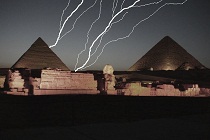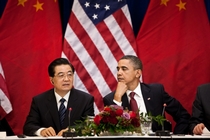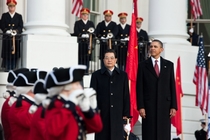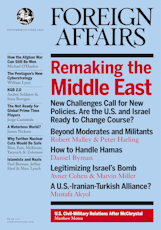The end of stability in the Arab world
As the Arab world reinvents itself in real time, the rest of the world must begin to understand the region as something more than a source for oil and a market for armaments and consumer goods.
 Courtesy: CrethiPlethi/Flickr
Courtesy: CrethiPlethi/Flickr
As the Arab world reinvents itself in real time, the rest of the world must begin to understand the region as something more than a source for oil and a market for armaments and consumer goods.
 Courtesy: NinaAldinThune/Wikimedia
Courtesy: NinaAldinThune/Wikimedia
There are more than Western interests at play in Egypt. The other catalysts for the unrest are a combination of Iranian adventures, hypocritical policies of West Asian regimes and resurgent commodity speculation in western markets, triggering a rise in prices of basic items in emerging markets
 Courtesy: SamanthaAppleton/WhiteHouse
Courtesy: SamanthaAppleton/WhiteHouse
Indo-US business dealings and the US Federal Reserve’s money-printing initiative may have saved Chinese President Hu Jintao the headache of explaining – to his American counterpart – China’s stealth fighter shocker, undervalued currency and giant trade surplus.
 Courtesy: ChuckKennedy/WhiteHouse
Courtesy: ChuckKennedy/WhiteHouse
Chinese President Hu Jintao’s visit to the US comes at a time when the geopolitical situation in Asia and the Asia-Pacific region is fluid - consequent to the US deciding to re-energise relations with countries in the region - and when Sino-US relations have been under some strain.
 Courtesy:
Courtesy:
The world’s leading international institutions may be outmoded, but Brazil, China, India, and South Africa are not ready to join the helm. Their shaky commitment to democracy, human rights, nuclear nonproliferation, and environmental protection would only weaken the international system’s core values.